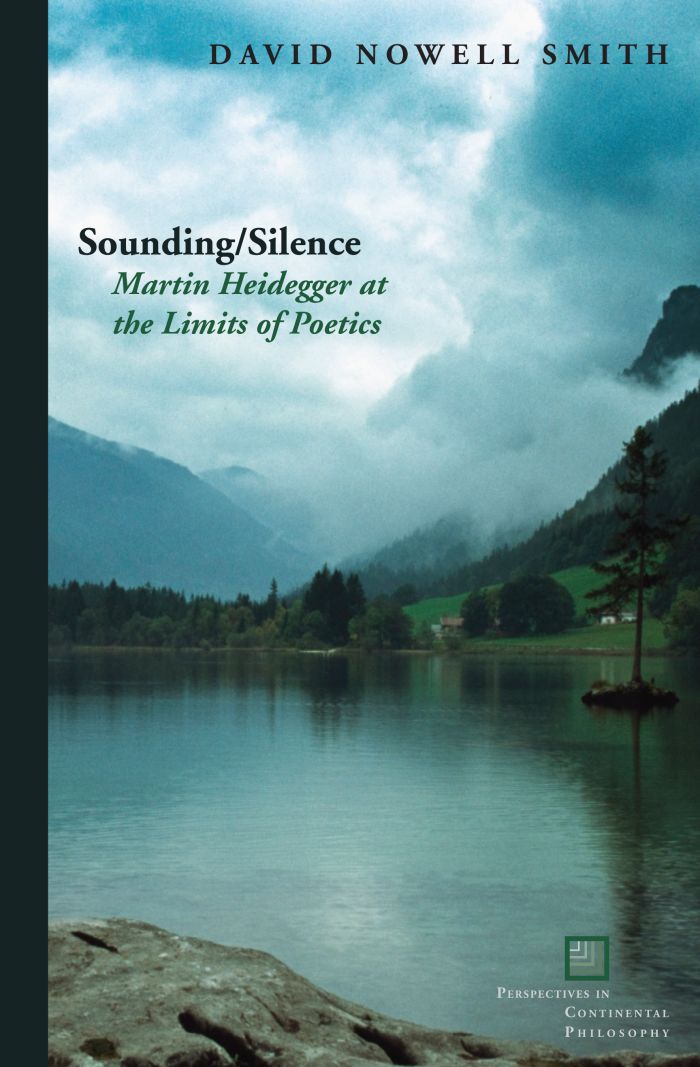Sounding/Silence
Martin Heidegger at the Limits of Poetics

This is a major work of critical thought. . . highly recommended.——Choice
Nowell Smith’s adventurous book shows that what is valuable in Heidegger’s poetics is its disclosure of a truth in poetry opening up areas in which the reader can leave Heidegger behind. While Heidegger might still try to feign ownership of this clearing away of his own problematic authority, it is the poetry and its characteristic sounding of its own voice that exceed his. Nowell Smith reads Heidegger’s readings of poems whose prosody is the catalyst of this transformation. He persuades us that Heidegger tries to see poetic figure, rhythm, and metrical invention as effacing themselves before an insight into the being of language. In fact, though, he exposes his own paradoxical reliance on poetry to try to establish the philosophical control his insights have empowered poetry to displace. To read Heidegger adequately here is to read him despite himself. Nowell Smith carefully and accessibly unpacks the ways in which Heidegger sets the poems to work against his philosophical unleashing of their own authority. Throughout, this central struggle of Heidegger’s thought with itself is dramatized by concrete poetic examples and so by close attention to Heidegger’s close attention to the words on the page. The result is a work with unusual power to make us intimate with Heidegger’s still-compelling mix of the highest philosophical abstraction and the closest intimacy with the living contexts of expression.——Paul Hamilton, Queen Mary, University of London
“The best book on Heidegger and poetry that I have ever read, Nowell-Smith’s Sounding/Silence takes both Heidegger and poetry very seriously, presuming that the most worthwhile goal is to do justice to both in an attempt to advance our understanding of poetics.”——Jonathan Culler, Cornell University
'Sounding/Silence' is a welcome contribution to a growing movement to rehabilitate literary criticism left casting about in the ruins that critical theory has made of literature studies.——The Review of Metaphysics

